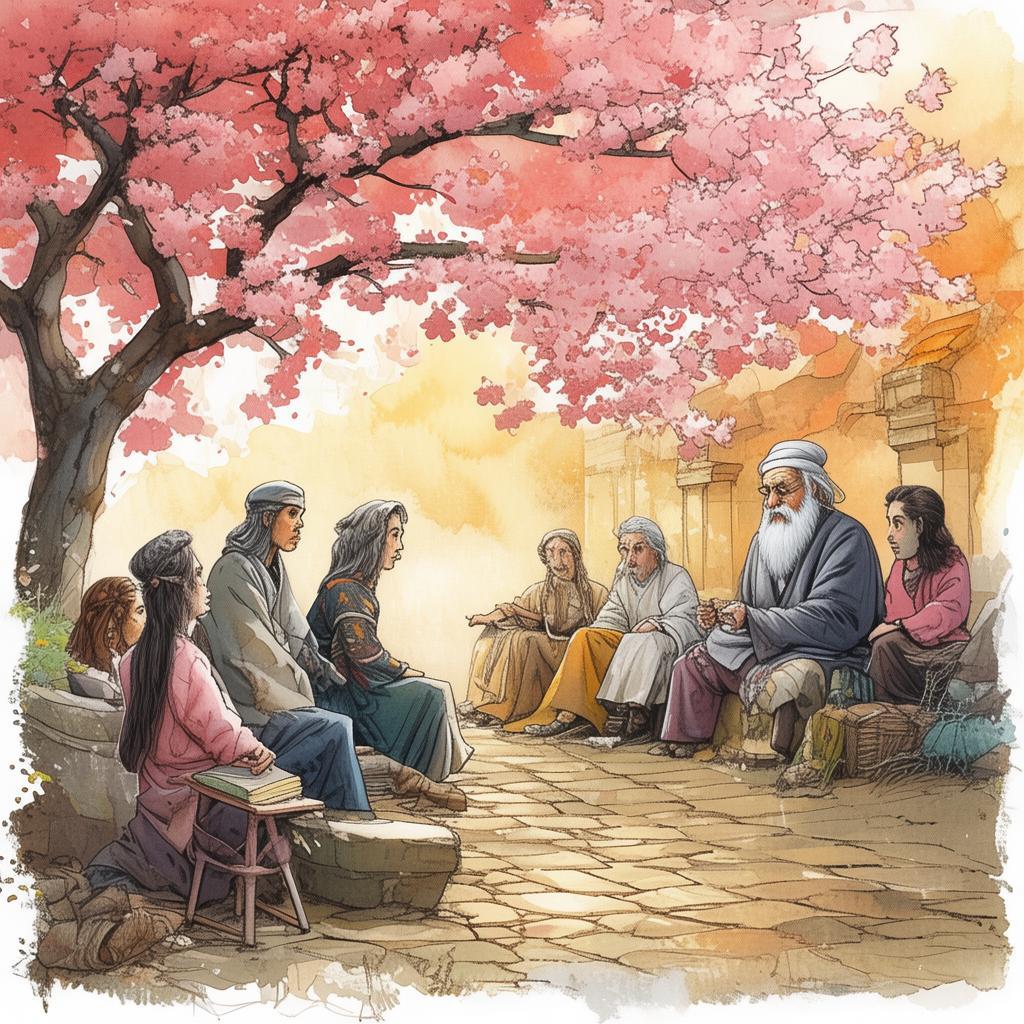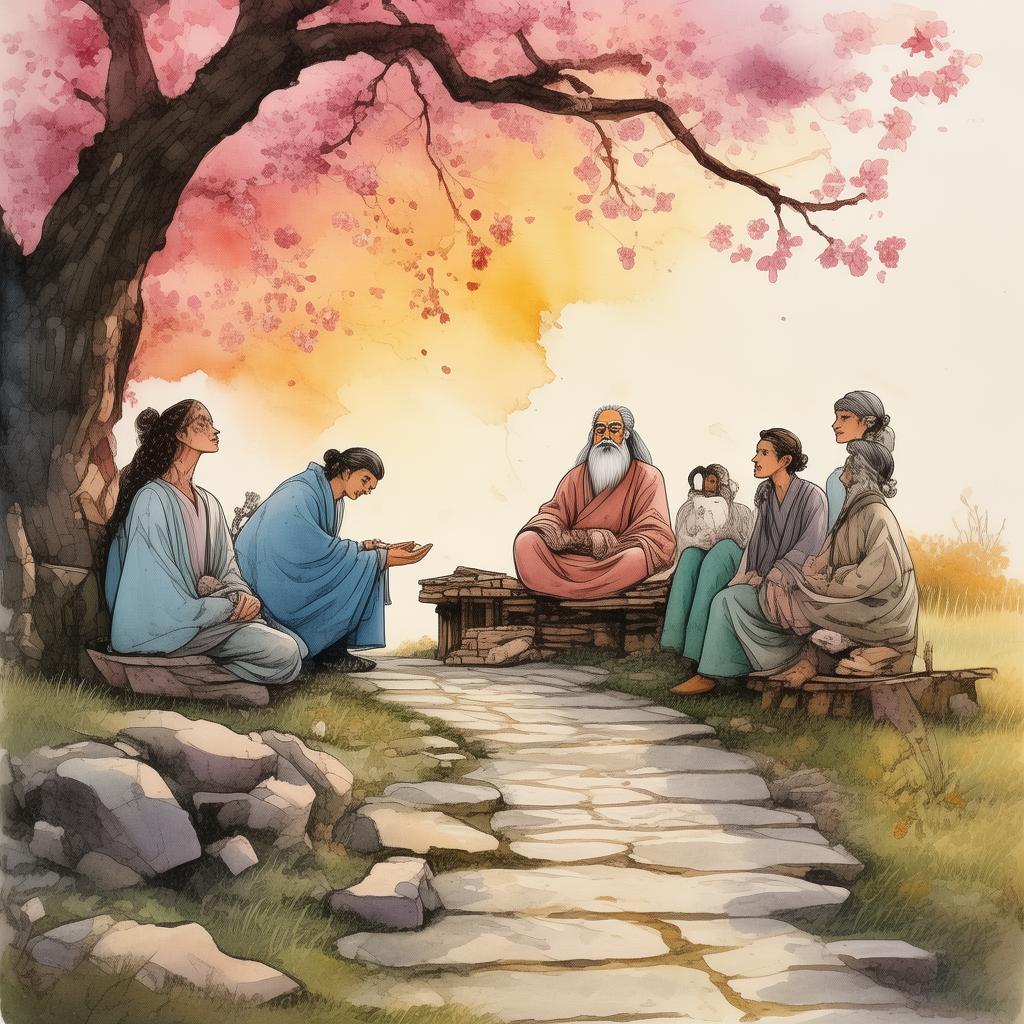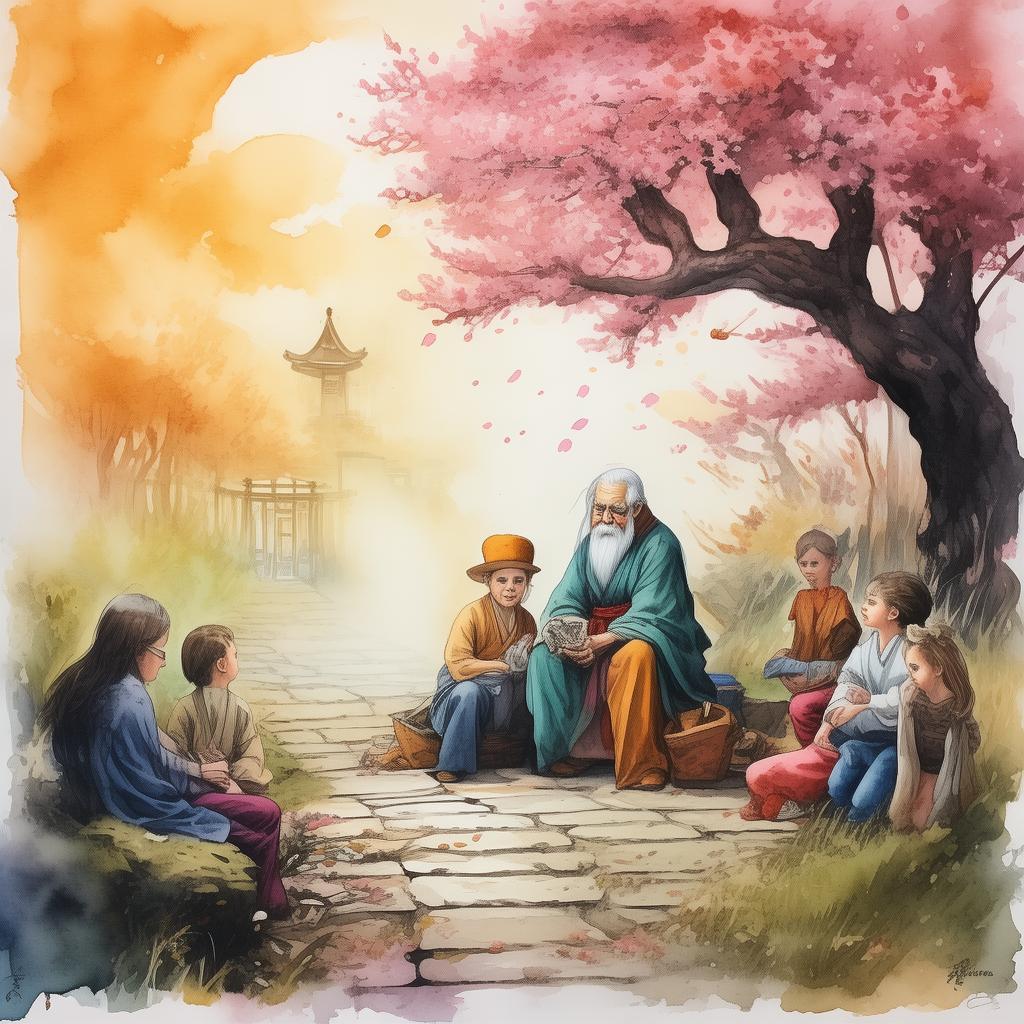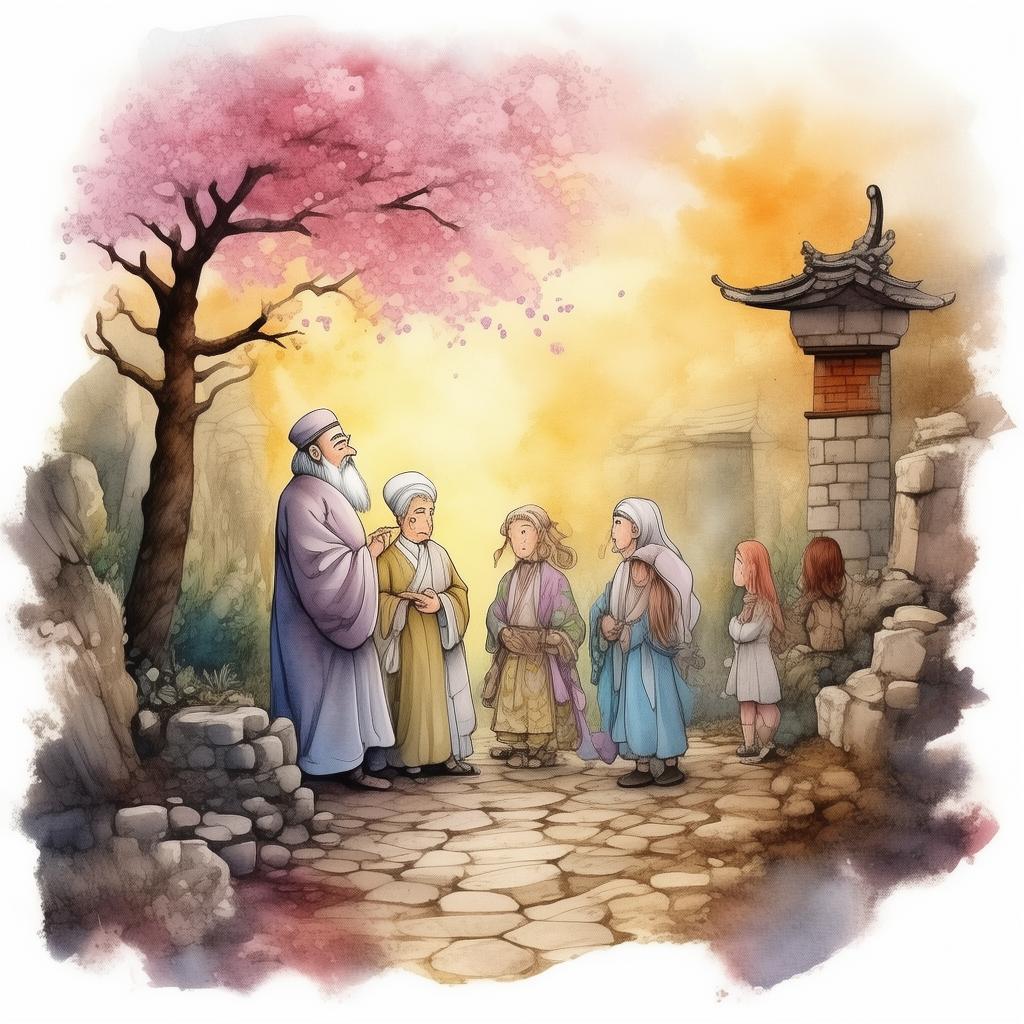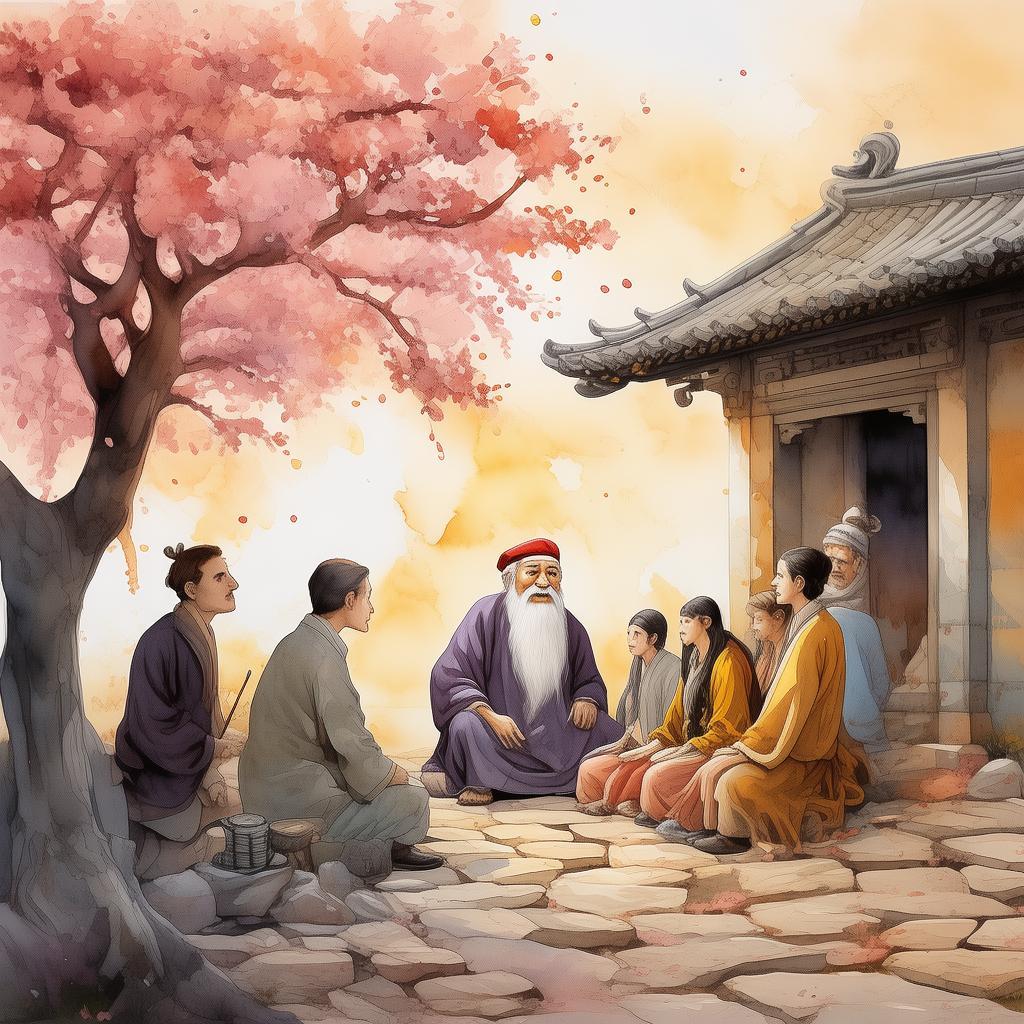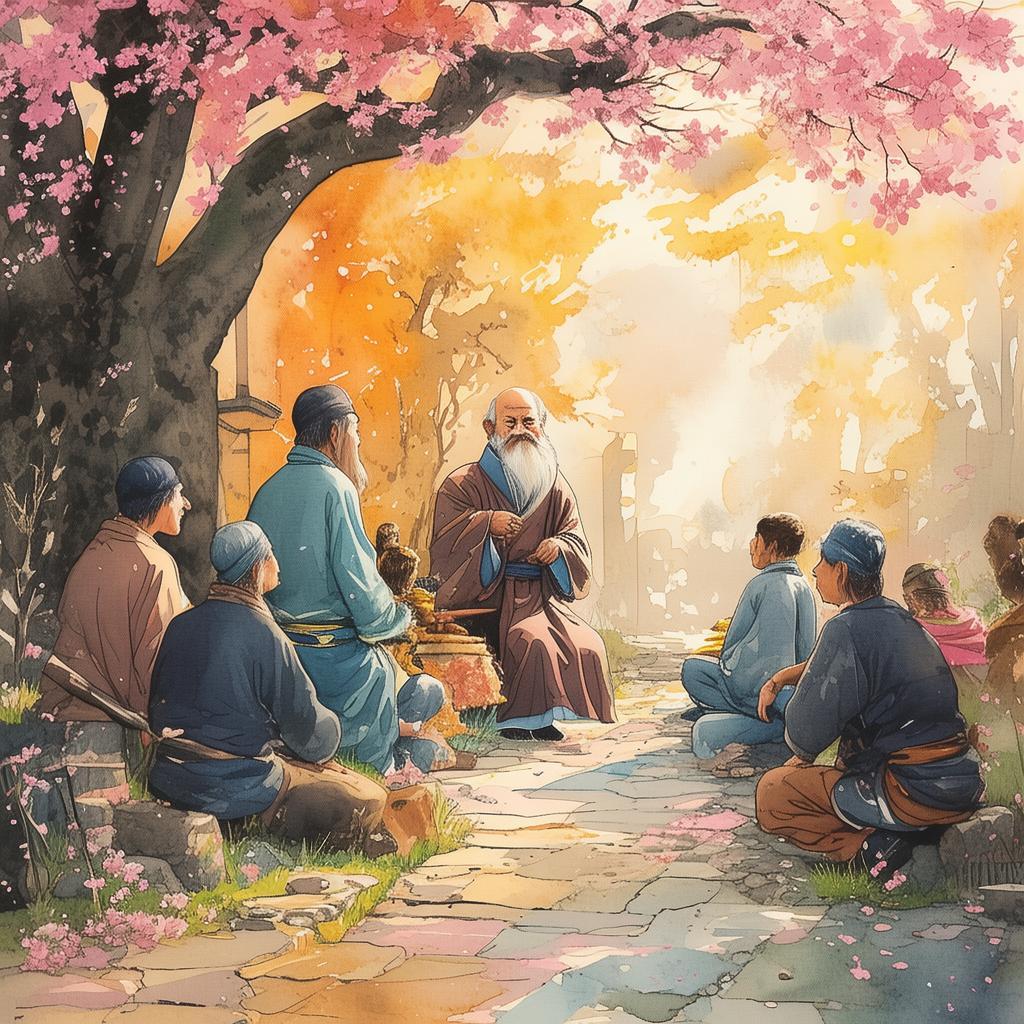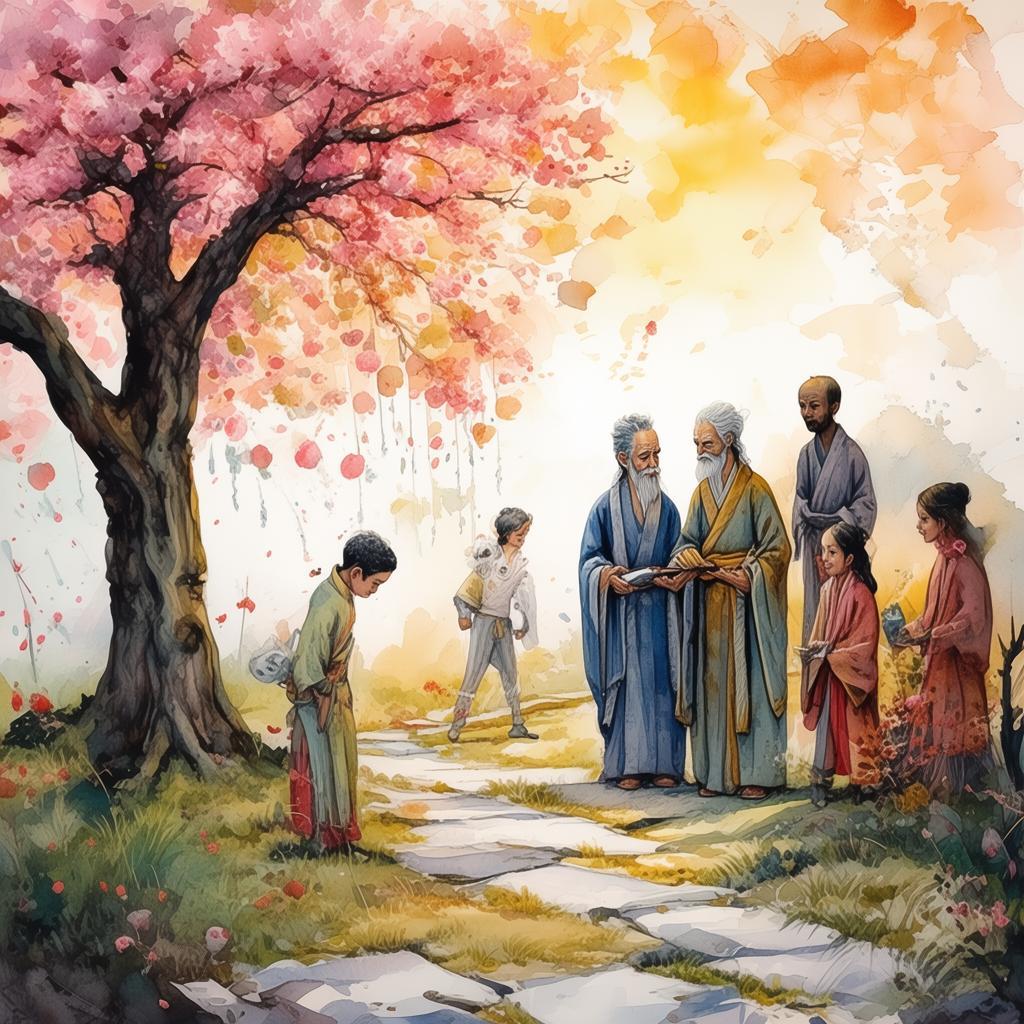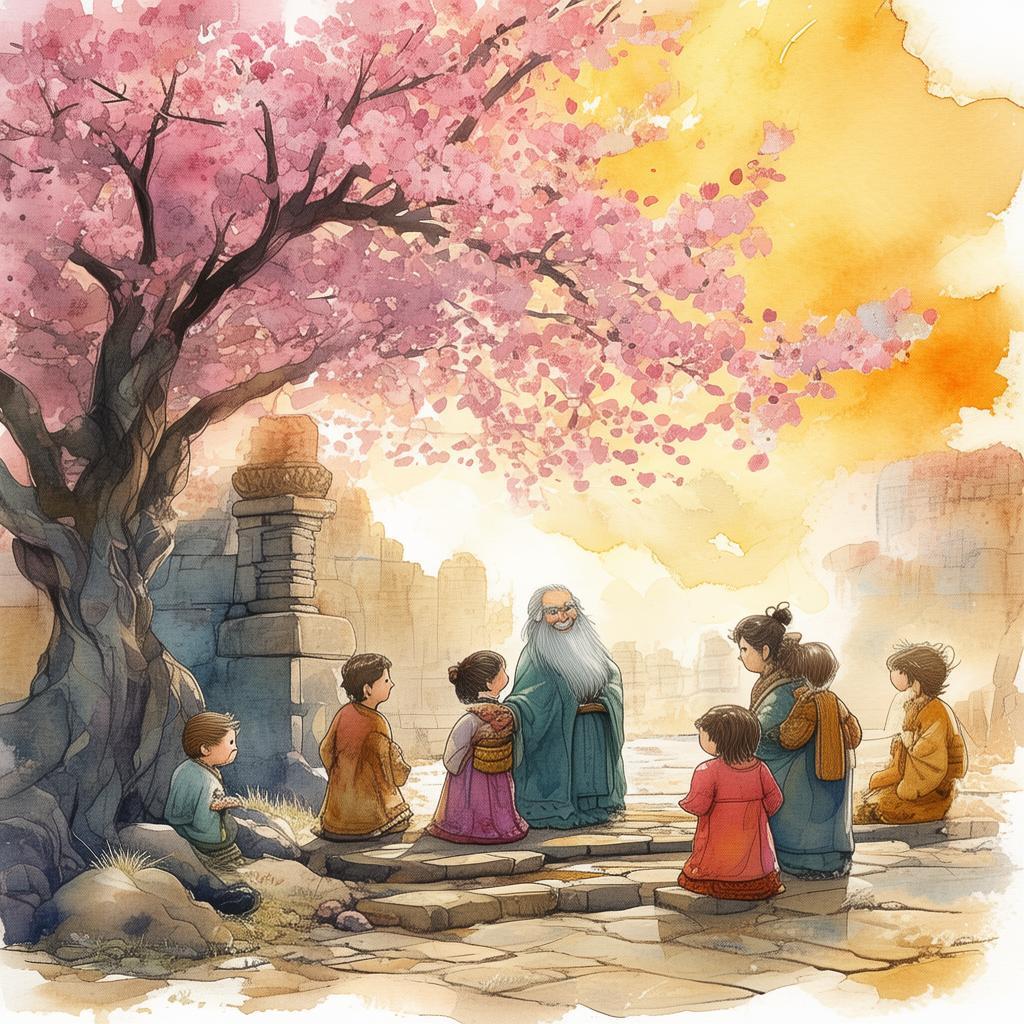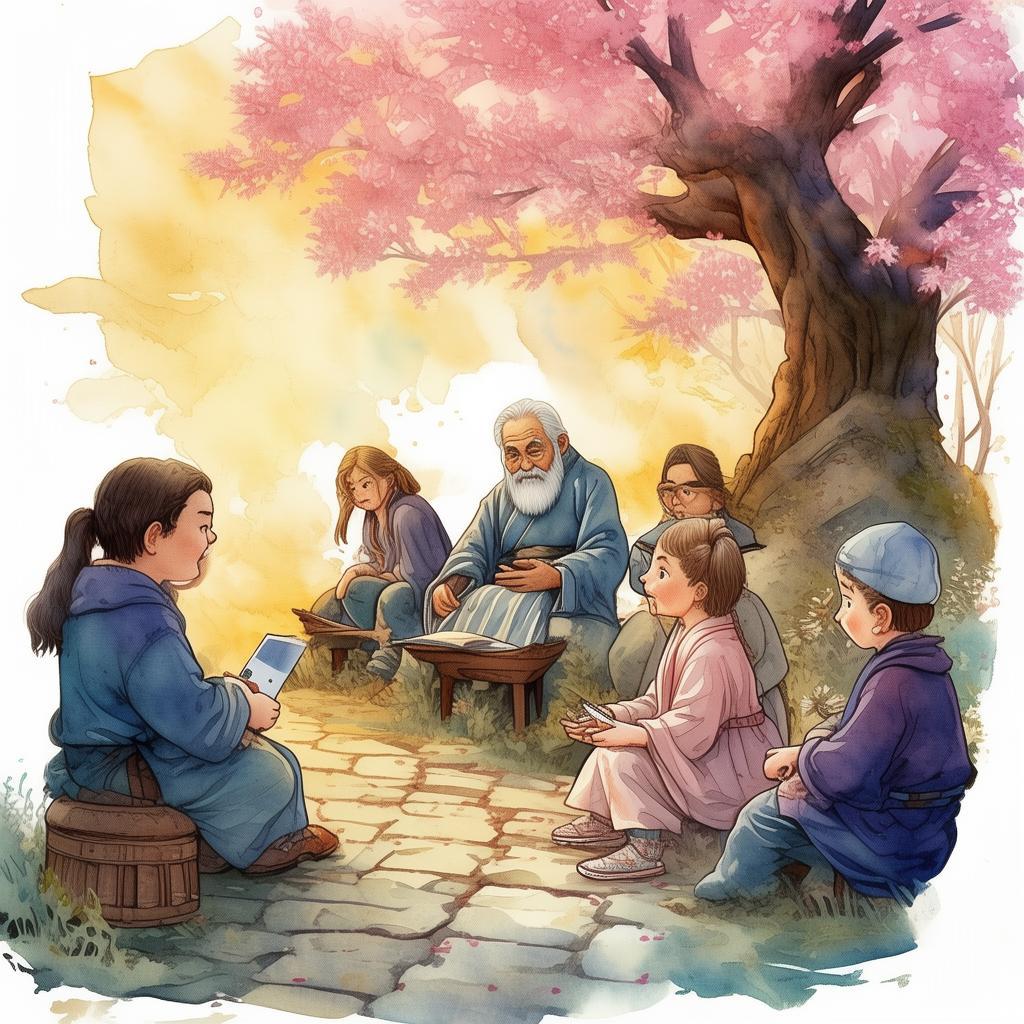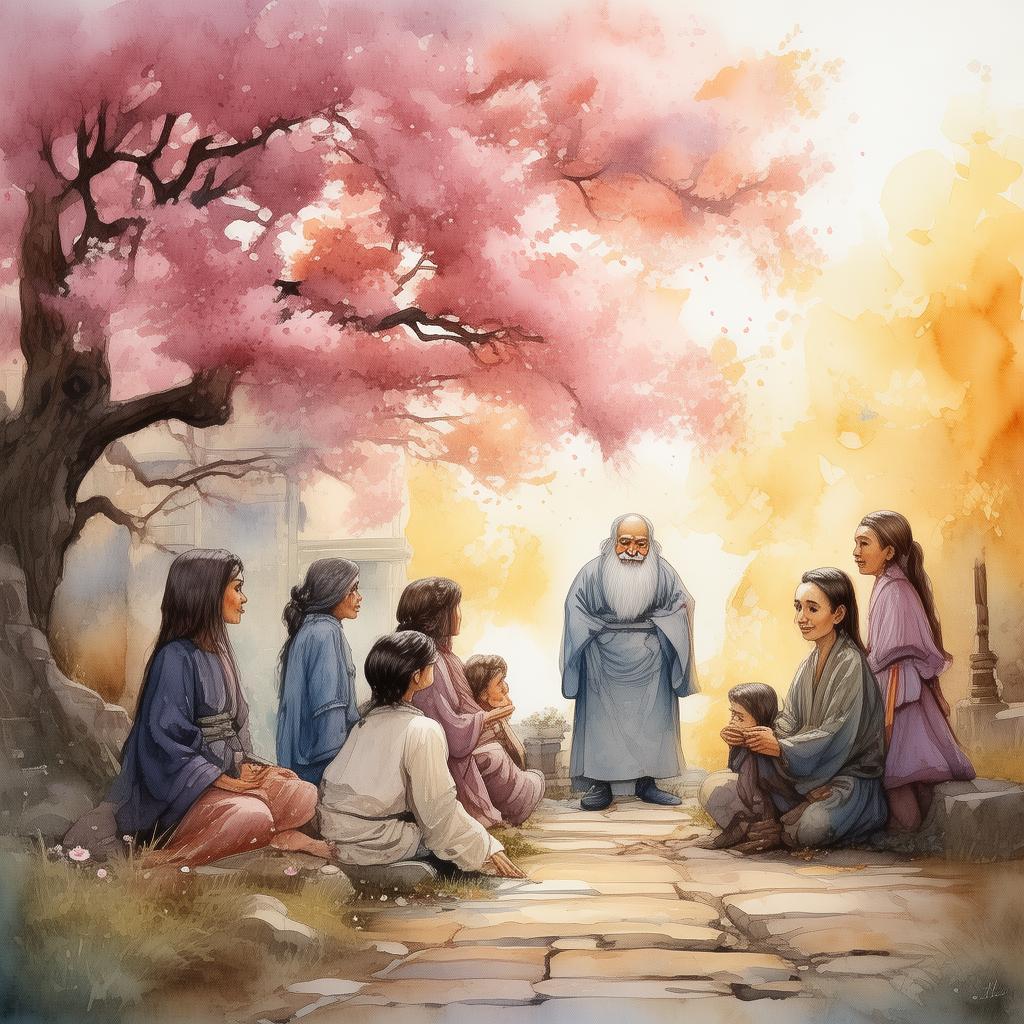Whispers of the Bard: The Revolution of Rhyme
In the heart of ancient China, there lived a bard named Ming. Ming was no ordinary poet; he was a master of the ancient art of storytelling, using the power of rhyme to captivate and inspire. His tales, rich with emotion and steeped in history, were the lifeblood of the village, keeping the spirits of the people high and their hope alive in the face of adversity.
One fateful day, a new ruler came to power, a man named Emperor Qing. Emperor Qing was a cruel and oppressive ruler, known for his iron fist and the suppression of the common folk. He banned gatherings, destroyed libraries, and silenced anyone who dared to speak out against his rule. Ming, with his gift of the spoken word, felt the weight of these oppressive times.
The village elder, a wise and respected figure, approached Ming with a heavy heart. "Ming, our people need you now more than ever. The Emperor's reign is a dark cloud over our land. You must find a way to inspire us, to give us hope."
Ming knew the danger he faced, but he also knew that silence was not an option. He began to weave revolutionary messages into his tales, using the art of rhyme to disguise his message. He spoke of the beauty of nature, the strength of the people, and the injustice of the Emperor's rule. The villagers listened, their hearts stirred by the power of Ming's words.
As Ming's rhymes spread through the countryside, they began to ignite a spark of rebellion in the hearts of the people. They whispered in the fields, echoed in the markets, and resonated in the quiet corners of homes. The message was clear: it was time to rise up against the Emperor Qing.
Word of Ming's rhymes reached the ears of the Emperor, and he was filled with anger. "Who dares to speak against me in such a manner?" he demanded. He sent his henchmen to silence Ming, to crush the rebellion that was brewing in the hearts of the people.
But Ming was not to be so easily subdued. He took refuge in the forest, where he continued to sing his revolutionary rhymes. The forest became a sanctuary for those who sought refuge from the Emperor's oppressive rule. Ming's rhymes became the rallying cry of the resistance, a beacon of hope in the darkness.
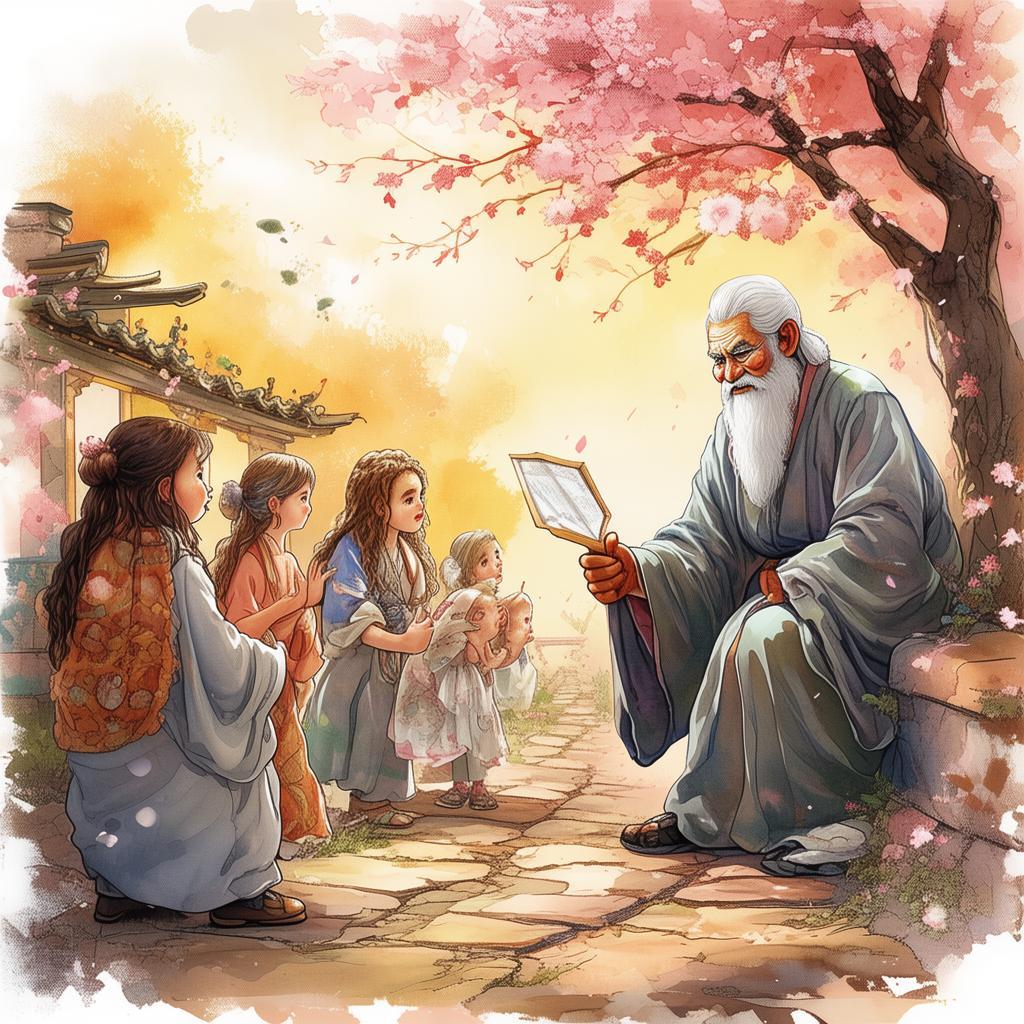
One night, as the moon hung low in the sky, a group of rebels gathered around Ming. "We are ready to fight," they declared. "Your rhymes have given us the courage we needed. We will rise up against Emperor Qing and restore freedom to our land."
With Ming's rhymes as their guide, the rebels attacked the palace. The battle was fierce, but the people fought with a passion that had been kindled by Ming's words. They overthrew Emperor Qing and established a new government, one that valued the voice of the people.
Ming emerged from the forest to be hailed as a hero. His rhymes had sparked a revolution, and he was the Bard who had the power to change the world. The village elder approached Ming, tears of joy streaming down his face. "You have done what no one else could have. You have given our people hope."
Ming smiled, his eyes twinkling with pride. "I only did what I was meant to do. To tell the truth, to inspire change, and to be the voice of the voiceless."
And so, Ming's tale became a legend, a story of the power of rhyme and the courage of a people who fought for their freedom. The Bard who weaved revolution through the power of rhyme had truly changed the world.
The story of Ming, the Bard, and the revolution he inspired would be told for generations, a testament to the power of words and the indomitable spirit of the human heart.
✨ Original Statement ✨
All articles published on this website (including but not limited to text, images, videos, and other content) are original or authorized for reposting and are protected by relevant laws. Without the explicit written permission of this website, no individual or organization may copy, modify, repost, or use the content for commercial purposes.
If you need to quote or cooperate, please contact this site for authorization. We reserve the right to pursue legal responsibility for any unauthorized use.
Hereby declared.
